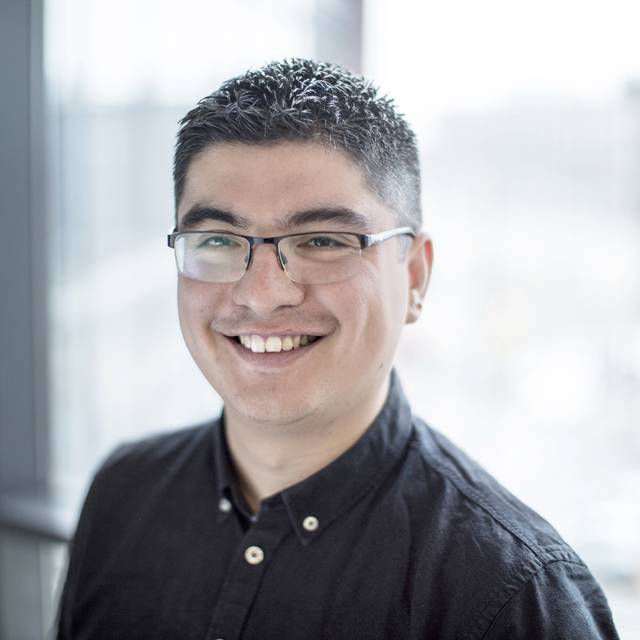CKC 2023: New Futures for Creative Economies
Day 1
Participatory Housing Manufacturing: Co-making and co-producing community housing
Abstract
‘Participatory Housing Manufacturing’ is an ESPRC funded project focused on embedding digital fabrication technologies within community housing codesign in Bridport, a coastal community in Dorset. Instead of a ‘problem-solution’ delivery plan, the project offered exchange opportunities for researchers and local stakeholders to engage with architectural solutions within more situated, relational, socially, and environmentally aware practices. The presentation reflects upon researcher and participant experiences of co-designing automated construction building components, and the complex coalescence and iterative interactions of human-to-human and human-to-material engagements that occur when working with automation technologies grounded within a socio-geographic context.
Our work in Bridport was instantiated by testing the feasibility of digital fabrication tools to work with local, non-standard materials to prototype building elements. Integrating local, non-standard materials with digital fabrication challenges mainstream digital narratives operating under standardised industrial frameworks [1]. We however attempted to retain a sense of locality and place-based material practices and supply chains, working with local makers and suppliers on a local infrastructure for the adoption and prototyping with digital fabrication technology. On this conceptual tension, the presentation will introduce the notion of techno-geographies, an approach to reading socio-technical systems as situated, moving, transferable and ubiquitous across human geographies and cultures, impacting in local communities and economies [2]. The theoretical background draws upon various disciplinary areas intertwined in a broader radical and social innovation discourse. This presentation will highlight the influence of areas such as material agency [3-5], systems thinking [6, 7], and social (infra)structures for transformational change [8, 9]. In terms of methods, a core deliverable is a Design Lab in Denhay Farm – a rural prototyping space stimulating exchange and reflection, prototyping activity [10], co-developed housing design propositions, and mapping of (im)material and non-standard systems [11].
To conclude, the presentation reflects upon the project and its embeddedness within place, people, and practices – a distributed ecosystem involving human and non-human stakeholders; materials (such as timber, hemp and clay), technologies deployed (such as CNC machines in a Digital Fabrication Laboratory), and the local landscape (farmland surrounding Bridport) influenced the outcomes of the project as much as the intentions of the human actors. Finally, we outline avenues for further work following our upcoming AHRC Design Exchange Partnership project “Building with/for Bridport: A systems thinking methodology for housing codesign in coastal communities” (2023-24).
- Fure, A., Digital Materiallurgy: On the productive force of deep codes and vital matter, in ACADIA 11: Integration through Computation, J.S. Johnson, et al., Editors. 2011, Laboratory for Integrative Design (LID) Faculty of Environmental Design (EVDS) University of Calgary, Canada.: Calgary/Banff. p. 90-97.
- Gibson-Graham, J.K., The end of capitalism (as we knew it): A feminist critique of political economy. 2006: University of Minnesota Press.
- Berg, M., Digital technography: A methodology for interrogating emerging digital technologies and their futures. Qualitative Inquiry, 2022. 28(7): p. 827-836.
- Ingold, T., Making: Anthropology, Archaeology, Art and Architecture. 2012: Routledge.
- Leonardi, P.M. and C. Rodriguez-Lluesma, Sociomateriality as a lens for design: Imbrication and the constitution of technology and organization. Scandinavian Journal of Information Systems, 2012. 24(2): p. 79-88.
- Buchanan, R., Systems thinking and design thinking: The search for principles in the world we are making. She Ji: The Journal of Design, Economics, and Innovation, 2019. 5(2): p. 85-104.
- Orlikowski, W., Using technology and constituting structures: A practice lens for studying technology in organizations. Organization Science, 2000. 11(4): p. 367-472.
- Le Dantec, C. and C.D. Salvo, Infrastructuring and the formation of publics in participatory design. Social Studies of Science, 2013. 43(2): p. 241-264.
- Vink, J., K. Wetter-Edman, and K. Koskela-Huotari, Designerly approaches for catalyzing change in social systems: A social structures approach. She Ji: The Journal of Design, Economics, and Innovation, 2021. 7(2: Summer 2021): p. 242-261.
- Sanders, E.B.N. and P.J. Stappers, Probes, toolkits and prototypes: three approaches to making in codesigning. CoDesign, 2014. 10(1: CoDesigning through making): p. 5-14.
- Buchli, V., The prototype: presencing the immaterial. Visual Communication, 2010. 9(3): p. 273-286.
Biographies
Dr Alejandro Veliz Reyes is an Associate Professor in Digital Design, and Associate Head of School (Knowledge Exchange and Enterprise) in the School of Art, Design and Architecture, University of Plymouth. He leads the MA Architectural Design course, and his research focuses on digital innovation and codesign of spatial media for healthcare, design and construction. He has been actively involved on the delivery of our new Digital Fabrication and Immersive Media Labs, and his most recent research projects include funding from EPSRC, ESRC, Research England, Office for Students, and EPSON Robotic Solutions.
Alexandra Carr is a multi-disciplinary designer and doctoral researcher (Digital Art and Technology) within the School of Art, Design and Architecture at the University of Plymouth. Her research explores the roles of creative thinking and material experimentation within collaborative design development, investigates the role and impact of technologies for critical making, and works with user groups often disenfranchised from mainstream ‘design economy’ discourses. Recent work has included facilitation and participation in explorations of digital fabrication innovation, and interdisciplinary collaborations with areas such as Health.
Tim Crabtree works with the Wessex Reinvestment Trust group, which he co-founded in 2001 – in particular, with Wessex Community Assets which developed one of the UK’s largest enabling services for community led housing, as well as supporting community share issues in areas such as renewable energy and local food. From 2012, he has also been a part-time Senior Lecturer in Economics at Schumacher College, a graduate institution linked to Plymouth University, Transition Network and the New Economics Foundation. Tim’s main focus is the Raise The Roof project – a partnership working with Assemble Studio (2015 Turner Prize) seeking to change the way we build affordable housing.

Alejandro Veliz Reyes

Alex Carr



